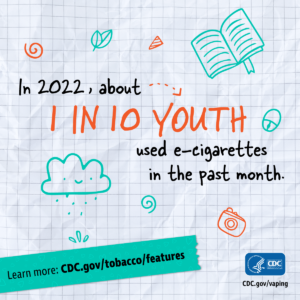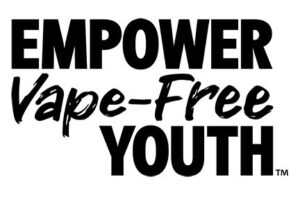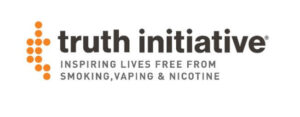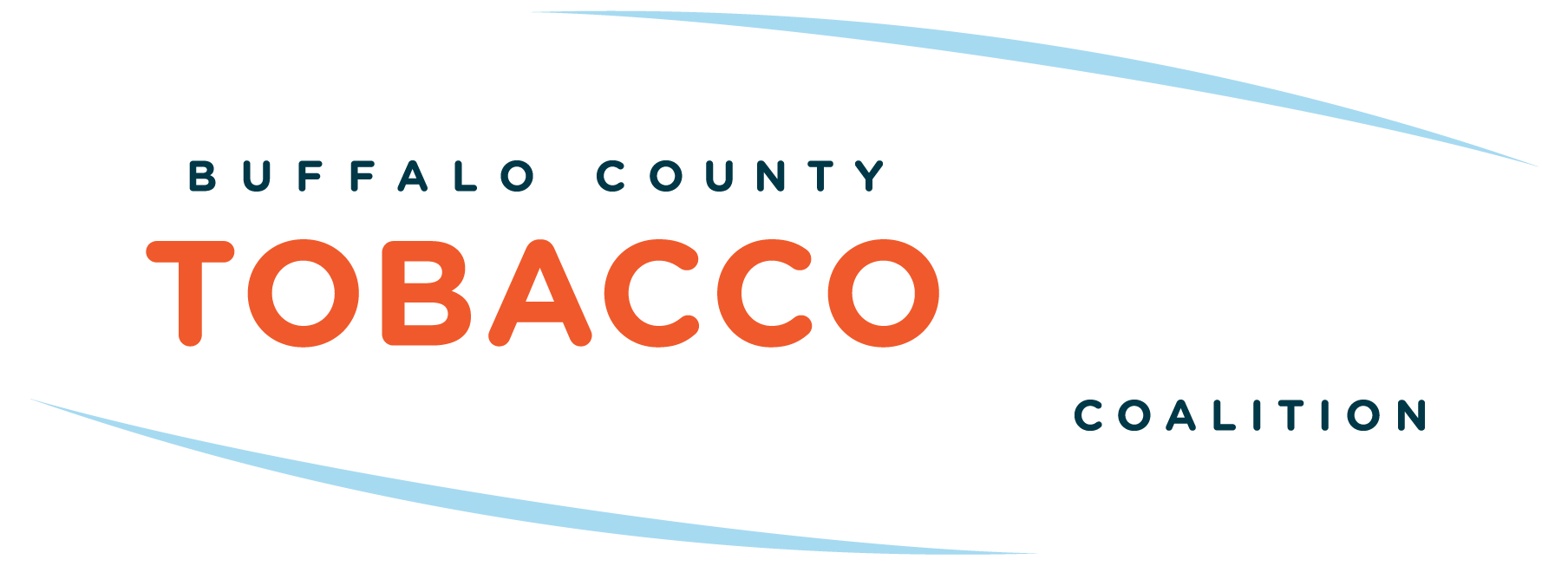
 No Limits Nebraska mini-grant applications are now open! These grants will give Nebraska teens a chance to create a tobacco-free school campus with student-led tobacco prevention events. The deadline to apply is Oct. 31, 2023.
No Limits Nebraska mini-grant applications are now open! These grants will give Nebraska teens a chance to create a tobacco-free school campus with student-led tobacco prevention events. The deadline to apply is Oct. 31, 2023.
The grants are available for students in grades 7-12+. Technical assistance from No Limits will be provided to grantees.
Students must have one adult sponsor. Once applications are turned in, No Limits will review applications and determine applicant eligibility. Priority will be given to grant applications with a focus on policy change and a plan for media involvement.
There will be a short closing evaluation that is due in April 2024.
View the mini-grant flyer: OVERVIEW FLYER
 This new interactive course, developed by the Specialized Training and Technical Assistance Resource Hub, for state and local tobacco control programs and their community partners covers the benefits of smoke-free policies for low SES communities, along with resources for policy implementation.
This new interactive course, developed by the Specialized Training and Technical Assistance Resource Hub, for state and local tobacco control programs and their community partners covers the benefits of smoke-free policies for low SES communities, along with resources for policy implementation.
By the end of the 30-minute course, learners will understand the impact of secondhand smoke on low socioeconomic status populations and considerations for creating equitable, effective tobacco-free policies enabling you to provide enhanced support to the populations most impacted by tobacco-related disparities.
 A new CDC feature article gives parents and educators tips and resources to help them protect youth from the harms of vaping. Parents and educators, including teachers, administrators and coaches, play an important role in protecting youth from e-cigarettes, also known as vapes.
A new CDC feature article gives parents and educators tips and resources to help them protect youth from the harms of vaping. Parents and educators, including teachers, administrators and coaches, play an important role in protecting youth from e-cigarettes, also known as vapes.
As students go back to school, it is the perfect time to educate them about the dangers of vaping. This article highlights e-cigarette use among youth, the health risks of vaping for youth, how nicotine can be a source of stress, and resources to help youth quit vaping. It includes suggestions on how parents and educators can talk to youth about the dangers of vaping and how to quit.
 The CDC’s Office on Smoking and Health launched a new campaign, Empower Vape-Free Youth™ on Sept. 4, 2023. This campaign builds on the Emerging Tobacco Products and the Protecting Young People from E-cigarettes communication initiatives. The initial media buy will run for three weeks. The goal of the Empower Vape-Free Youth™ campaign is to empower educators to speak with youth about the risks of e-cigarettes and nicotine addiction and to encourage youth to avoid and/or quit vaping. Educators include teachers, coaches, school counselors and on-site administrators (e.g., principals, vice-principals, etc.) in U.S. middle and high schools.
The CDC’s Office on Smoking and Health launched a new campaign, Empower Vape-Free Youth™ on Sept. 4, 2023. This campaign builds on the Emerging Tobacco Products and the Protecting Young People from E-cigarettes communication initiatives. The initial media buy will run for three weeks. The goal of the Empower Vape-Free Youth™ campaign is to empower educators to speak with youth about the risks of e-cigarettes and nicotine addiction and to encourage youth to avoid and/or quit vaping. Educators include teachers, coaches, school counselors and on-site administrators (e.g., principals, vice-principals, etc.) in U.S. middle and high schools.
The new campaign materials include print resources, animated videos, live action videos and social media assets. These materials will be available on the CDC Office on Smoking and Health Media Campaign Resource Center at www.cdc.gov/mcrc in Fall 2023.
You can also get involved by:
Please email questions to OSHCommTA@cdc.gov.
On Aug. 23, 2023, FDA issued warning letters to 15 online retailers for selling and/or distributing unauthorized e-cigarette products packaged to look like youth-appealing characters, school supplies, toys and drinks. Since the appearance of these illegal products can be deceiving, the agency is also seeking to raise awareness among parents, teachers and other adults headed into the new school year.
“The design of these products is a shamelessly egregious attempt to target kids,” said Brian King, Ph.D., M.P.H., director of FDA’s Center for Tobacco Products. “It’s a tough sell that adults using e-cigarettes to transition away from cigarettes need them to look like SpongeBob in order to do so successfully.”
The unauthorized products described in the warning letters include e-cigarettes that:
 Beginning in July 2023, major U.S. tobacco companies (Altria and its Philip Morris USA subsidiaries, R.J. Reynolds and ITG Brands) were required to begin posting signs at approximately 220,000 retail stores across the nation that sell cigarettes. This is a long-awaited result of a 2006 federal court case ruling in which major tobacco companies were found guilty of racketeering for deliberately misleading the public about the health risks of smoking and secondhand smoke and the addictive nature of their products. The signs are intended to correct the record on the topics the tobacco industry lied about and to prevent future fraud by the tobacco industry.
Beginning in July 2023, major U.S. tobacco companies (Altria and its Philip Morris USA subsidiaries, R.J. Reynolds and ITG Brands) were required to begin posting signs at approximately 220,000 retail stores across the nation that sell cigarettes. This is a long-awaited result of a 2006 federal court case ruling in which major tobacco companies were found guilty of racketeering for deliberately misleading the public about the health risks of smoking and secondhand smoke and the addictive nature of their products. The signs are intended to correct the record on the topics the tobacco industry lied about and to prevent future fraud by the tobacco industry.
Read more about the history behind these corrective statements in The Verdict Is In: Findings from United States v. Philip Morris.
Learn more about corrective statements here
 The Truth Initiative Tobacco/Vape-Free College Program is offering grants of up to $20 thousand to colleges and universities to support the adoption and implementation of a 100 percent tobacco/vape-free policy. Grantees of the Tobacco/Vape-Free College Program receive guidance through webinars, an in-person training and one-on-one consultations throughout the grant period. Since 2015, the Tobacco/Vape-Free College Program has provided funding to more than 220 colleges, universities and college systems to advocate for and adopt a 100 percent tobacco-free policy.
The Truth Initiative Tobacco/Vape-Free College Program is offering grants of up to $20 thousand to colleges and universities to support the adoption and implementation of a 100 percent tobacco/vape-free policy. Grantees of the Tobacco/Vape-Free College Program receive guidance through webinars, an in-person training and one-on-one consultations throughout the grant period. Since 2015, the Tobacco/Vape-Free College Program has provided funding to more than 220 colleges, universities and college systems to advocate for and adopt a 100 percent tobacco-free policy.
Colleges and universities that have smoke- or tobacco-free policies that do not include e-cigarettes may still apply. To combat the vaping public health crisis, Truth Initiative is offering grants of up to $10 thousand to higher education institutions to strengthen their 100 percent smoke or tobacco-free policies by adding e-cigarettes.
The following Nebraska schools are eligible for the $20 thousand grant:
The deadline for applications is Thursday, Oct. 12, 2023, at 4:00 p.m. CT/5:00 p.m. ET.
Get more information on how to apply

Like many people who smoke, Roosevelt started experimenting with cigarettes in his teens. But his addiction became entrenched during his time in the military. Nearly 30 years later, damage from smoking began to take its toll. At age 45, Roosevelt experienced a heart attack that landed him in the hospital for a month. In order to repair the damage to his heart caused by smoking, doctors inserted stents into his heart. When that wasn’t enough, he had bypass surgery — six bypasses in all.
“A heart attack feels like a hand inside squeezing your heart,” he says. “It’s like the worst charley horse you can imagine — in your heart.” Roosevelt found cigarettes to be so addictive that even after his surgery he continued to smoke — but he noticed an ominous difference.
Now age 51, Roosevelt has been smoke-free for three years, but he’s had to give up his career as a commercial plumber because his heart is no longer strong enough for the strenuous activity such work requires. He says the love, support — and constant nagging — of his family was the key to him being able to quit smoking.

Tobacco Cessation and Behavioral Health Workgroup
Sept. 25, 2023 | 2:30 – 3:30 p.m. CT
During this meeting, individuals will focus on the workgroup’s mission to collaborate, establish projects for the workgroup, share resources and align goals across the state of Nebraska, with the aim of increasing tobacco cessation programming in behavioral health services.
Email kyla.scott@nebraska.gov to register
Tobacco Free Nebraska Quarterly Coalition Meeting
Oct. 25, 2023 | 9:30 – 11:00 a.m. CT
Tobacco Free Nebraska is hosting a virtual State Coalition Meeting on Wednesday, Oct. 25, 2023, from 9:30-11:00 a.m. CT/8:30-10:00 a.m. MT.
Tobacco Disparities Reframing Project
OPEN NOW | Virtual
The CDC Office on Smoking and Health’s training resource to help the tobacco control community use new evidence-based framing and messaging.
Nebraska Tobacco Disparities Partnership Meeting
Dec.13, 2023 | 2:30-3:30 p.m. CT
The Nebraska Tobacco Disparities Partnership is a vibrant network of people and organizations from across the state that focuses on reducing tobacco-related disparities among Nebraska’s diverse populations. The Nebraska Tobacco Disparities Partnership works to provide the information, resources and support that these populations need to prevent youth from using tobacco, and to help current tobacco users quit.
Email renee.wademan@nebraska.gov to register
SAVE THE DATE: National Conference on Tobacco or Health
Aug. 26-28, 2025 | Chicago, Illinois
The National Conference on Tobacco or Health is one of the largest, long-standing gatherings for top United States tobacco control professionals.
This convening attracts a diversity of attendees committed to best practices and policies to reduce tobacco use, which is the leading preventable cause of disease and death in the United States.
Learn more about the National Conference on Tobacco or Health
 This online order form provides the option to preview, order, download and print free and updated promotional resources such as brochures, window clings, magnets, information sheets and more with information about the Nebraska Tobacco Quitline. Most materials are available in both Spanish and English. Please order or use these free materials as needed.
This online order form provides the option to preview, order, download and print free and updated promotional resources such as brochures, window clings, magnets, information sheets and more with information about the Nebraska Tobacco Quitline. Most materials are available in both Spanish and English. Please order or use these free materials as needed.
October
Accredited courses are now available online through the Nebraska Tobacco Quitline, for providers looking to receive CME, CNE or CPE credits. Every year providers in Nebraska support patients quitting tobacco by referring them to the Quitline. The courses offered help providers discuss how cessation can increase quit success and reduce the risks associated with tobacco use, including vaping. Several courses are offered and cover a variety of topics, such as Tobacco Use Disparities for People with Behavioral Health Conditions, Myths About Quitting, Vaping and E-Cigarette Devices, and more.
Additionally, providers can refer patients using the new online web referral option or the updated fax referral form. Go online to access tools, resources, and education modules, plus the web and fax referrals for providers ready to help patients quit, at QuitNow.ne.gov/providers.
 Call 1-800-QUIT-NOW or visit QuitNow.ne.gov to reach a trained quit coach, get access to free quit-smoking medication, and make a plan to quit tobacco for good.
Call 1-800-QUIT-NOW or visit QuitNow.ne.gov to reach a trained quit coach, get access to free quit-smoking medication, and make a plan to quit tobacco for good.

Comments